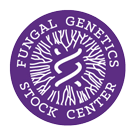Strain: Neurospora crassa
FGSC #7407
Reporting Genes: ser-6 het-8OR T(VIL->IR)T39M777
Species: crassa
Allele: T39M777 DK42 no#
Alternate Strain Number: 80N69
Depositor: JFL
Linkage Group: VIL
Mating Type: a
Opposite Mating Type: 7406
Genes

Reporting Genes: ser-6 het-8OR T(VIL->IR)T39M777
Species: crassa
Allele: T39M777 DK42 no#
Alternate Strain Number: 80N69
Depositor: JFL
Linkage Group: VIL
Mating Type: a
Opposite Mating Type: 7406
